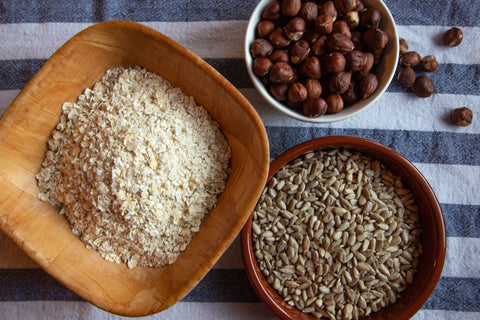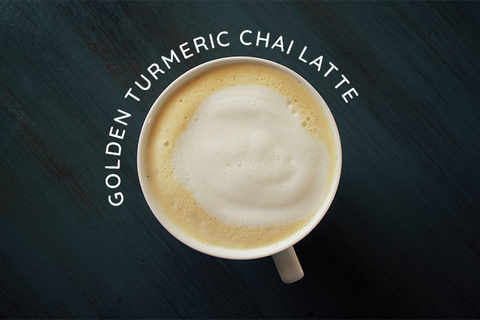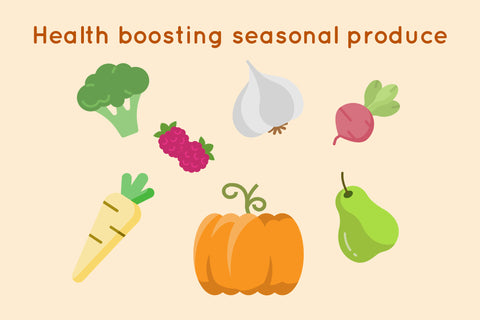Power up with these protein-packed plant foods
Posted on February 20 2019

Meat is probably the first food that comes to mind when you think of protein, but there are also plenty of other healthy ways to get enough. The right plant-based foods can be excellent sources of protein and other nutrients, often with fewer calories than animal products.1 Here are a few of our favourite plant-based proteins:

Pulses that pack a punch
Legumes are great sources of plant-based protein. "Pulses" are legumes that are harvested for their dried seeds, such as chickpeas (garbanzo beans), lentils, and dried peas and beans. The United Nations declared 2016 the International Year of Pulses2, highlighting their great nutritional value, and since then they have only grown in popularity.
These increasingly popular legumes are nutritional powerhouses, packed with protein, fibre, and other nutrients. They’re naturally low in fat and cholesterol-free. Pulses also contain both soluble and insoluble fibre. Soluble fibre can help manage body weight, blood sugar levels and lower cholesterol, whereas insoluble fibre assists with digestion.
Cooking pulses doesn’t have to be hard work – not only are they cheap and versatile, but there are also loads of easy ways to incorporate them into a healthy diet and lifestyle. You can whip up some hummus with chickpeas for a snack, make a chilli with plenty of kidney beans, or add lentils into a spag bol. Prepping uncooked pulses usually means soaking them overnight, but you can buy most pulses canned and ready to eat, making their preparation much simpler.

Seeds worth snacking on
Nuts and seeds are extremely versatile and can be used in main meals or as a snack to ensure adequate energy throughout the day. Nuts and seeds are also great sources of fibre and healthy fats, in addition to iron, calcium, magnesium, selenium, phosphorus, vitamin E and certain B vitamins. They also contain antioxidants, among other beneficial plant compounds.3 That includes the nut butters you love, like almond and peanut. Just watch your serving sizes as calories can add up fast.
You can use nuts and seeds in plenty of ways. Mix in granola, make your own nut butter, or sprinkle on salads to increase the healthy fat and protein content. Chia and hemp seeds are packed with protein and can be sprinkled on anything—from avocado toast to zucchini noodles. You can snack on almonds, which not only pack some protein, but also deliver some serious Vitamin E, which is great for your skin and hair.
There are loads of choices depending on your personal preference. When choosing which nuts and seeds to buy, keep in mind that blanching and roasting may damage the nutrients in nuts. So reach for raw, unblanched versions whenever possible.4

High-protein veg varieties
Eating your veg isn’t just a great way to get essential vitamins and minerals. It’s also a healthy way to get some protein. Vegetables might not contain all the protein you need per day, but they’re a great way to pack a bit more protein into each meal.
Many dark-colored, leafy greens and vegetables contain protein. A single stalk of broccoli contains about 4g of protein, cooked spinach packs 3g per half a cup, and peas (although not a likely source) have a punchy 8.6g per cup!5 Peas also contain a lot of lutein, an antioxidant that can help heart health by lowering cholesterol and preventing plaque buildup.
Another often overlooked veggie (or fruit, depending how you look at it), is sun-dried tomatoes. Not only do they contain over 7g of protein per cup, they also have nearly 30% of your recommended daily intake of magnesium, and a good amount of Vitamin K, which most plant-based foods lack.6 Although sometimes unlikely sources, there are plenty of vegetables like peas and sprouts that will help you to pack enough protein into your day.

Go-to grains for a protein boost
Packed with nutrient-dense goodness such as B vitamins and protein, grains are a great addition to your diet. Experimenting with new grains can open a world of exciting dishes, all packed with protein and antioxidants.
One of the most versatile grains you can opt for is quinoa. It’s technically a seed, but you prepare and consume it like a grain. It’s a gluten-free super grain that’s loaded with antioxidants, minerals, and a surprising amount of protein. It’s unique among plant proteins because it contains all nine essential amino acids, making it a complete protein (something most plant-based proteins aren't).7
You can use it in cooking as a high protein alternative to rice or pasta, served alone or over vegetables and greens. It also provides a good base for a veggie burger and is also a fantastic breakfast cereal when served cold with almond or coconut milk and berries. According to the USDA National Nutrient Database, 1 cup of boiled quinoa contains over 8 grams of protein,8 so it’s a great protein-packed addition to any meal.
What to remember
Getting enough protein doesn’t have to mean eating meat every day. Luckily, there are plenty of plant-based sources of protein that can help you keep on top of your nutrition. By including these healthy protein-rich plant foods in your routine, you’ll be well on your way to packing enough wholesome protein into your diet.

Read more about nutrients from a plant based diet >




